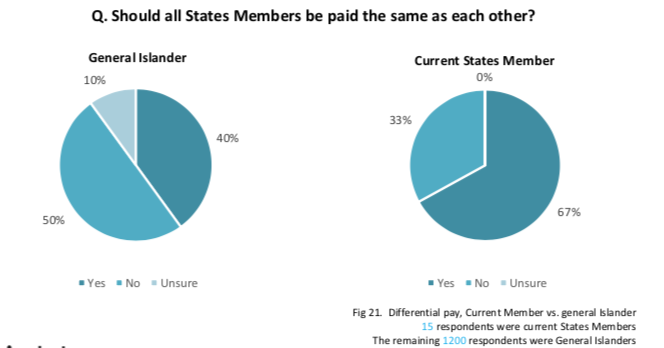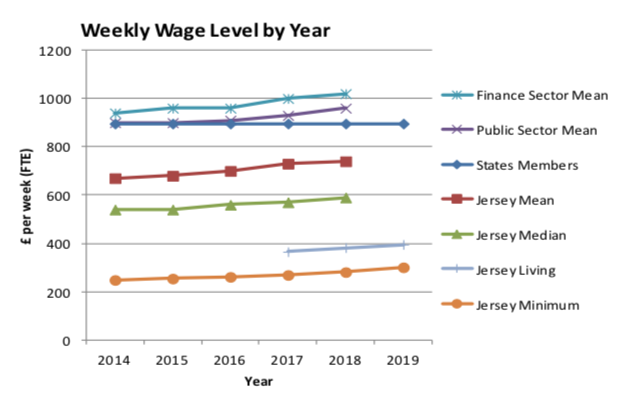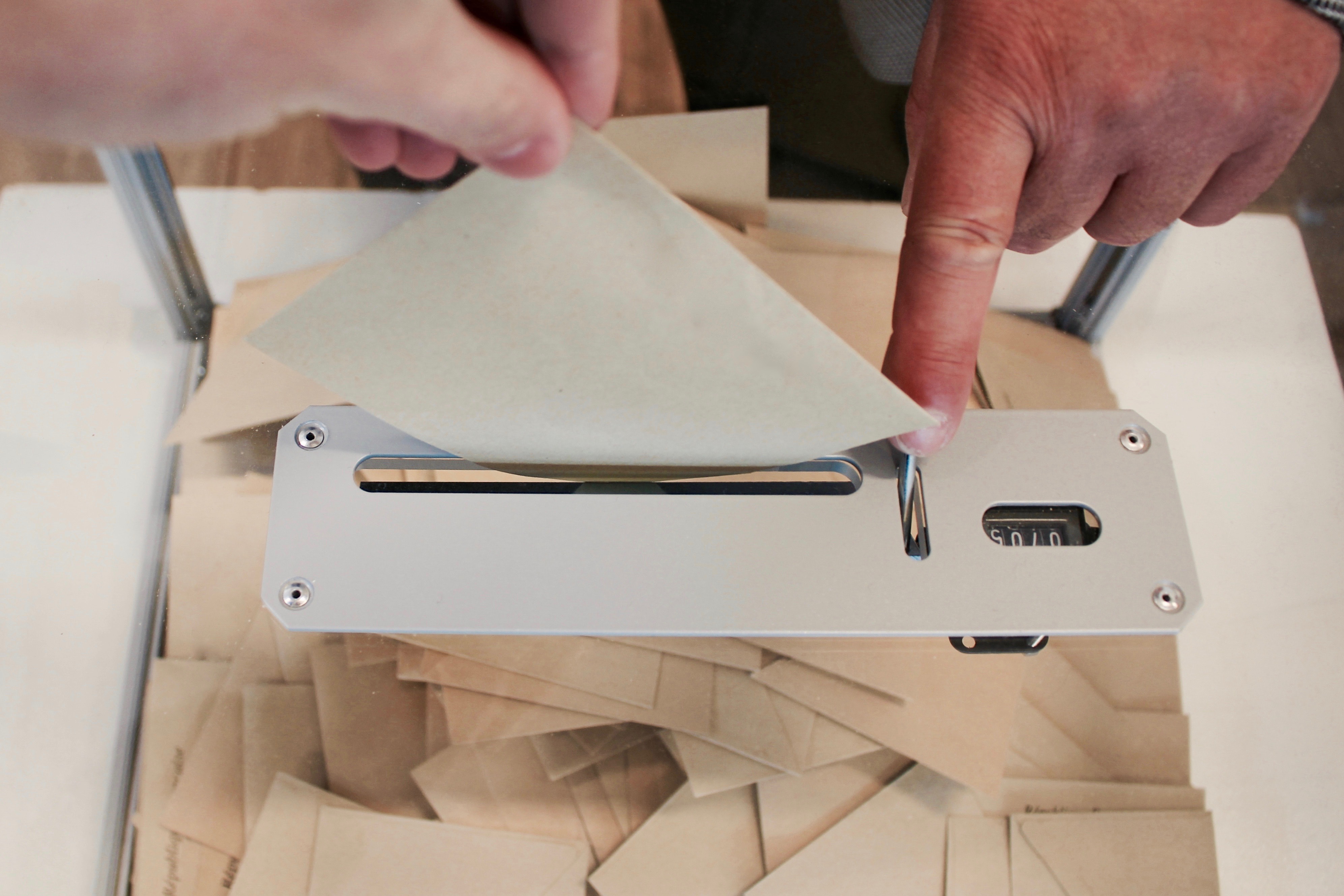

An independent board has put forward plans that would only see States Members that fail to get re-elected given redundancy pay, and the Chief Minister an £15,000 salary rise.
The recommendations came from the States Members Remuneration Review Board (SMRRB).
All States Members currently receive the same level of pay - £46,600, an amount which hasn’t changed since 2014 – but the board is not only suggesting to increase that to £50,000, but also to pay £7,500 more to Ministers and Heads of Scrutiny starting from the 2022 election.
Similar proposals were made by the Board in 2017. At the time, they recommended that the role of Chief Minister should receive a supplementary payment of £7,500 per year, in recognition of “its additional scope and responsibilities.” However, the recommendation split the Assembly and following a tied vote it could not be implemented.

Pictured: If proposals are approved, the more responsibility they have the more States Members will be paid.
In their latest report, published yesterday, the Review Board is suggesting once more that the Chief Minister be paid more than the States Members “to reflect the greater scope of the role” and have taken the idea further.
Not only are they suggesting a £15,000 uplift, but they are also calling for Ministers and the President of Scrutiny Chairs Committee to receive a £7,500 allowance on top of their basic pay.
This, the Board says, would “reflect the impact of their decisions on the Island and on Islanders, their duties of public accountability, and the demands of the role on their time.”
As part of their Review, the Board sought the opinions of 1,215 islanders via an online survey as well as that of States Members.

Pictured: A majority of politicians think the pay should continue to be the same for all Members.
56% of people believed pay should be higher for those with more responsibility – with two thirds (78%) stating the Chief Minister should be recognised with higher pay against 60% for Ministers. However, a majority of elected politicians did not support the idea with 67% stating pay should continue to be the same for all Members.
Those proportions were reversed when discussing the idea of pay increase for States Members.
A majority of them (80%) said their pay should be increased but only a third (33%) of the people supported the idea.

Pictured: States Members' pays is higher than the Jersey Mean and Median income.
The Board said the 7.3% increase would make States Members’ pay fairer as it has fallen since 2014 when compared to other groups and local indices. It would keep States Members’ pay between 70% and 75% of individual employment earnings in Jersey – this means 70% to 75% percent of individuals in employment in Jersey would earn less than States Members and 25% to 30% would earn more.
To make sure the pay of current States Members becomes no lower than that of 70% of individuals’, the Board has also recommended their pay be increased by £1,400 to £48,000 from 1 June 2020.
The suggested increases will take effect automatically unless a proposition is lodged within the next month to annul or vary the increases and the proposition is adopted by the States.

Pictured: The States Assembly would have to approve any changes to the Chief Minister and Ministers' pay.
However, additional pay for the Chief Minister and Ministers will only be introduced if the States Assembly agrees to change the law that provides that all States Members must be paid the same amount.
The Review Body again recommended the introduction of a pension scheme for States Members over fears that its is a “disincentive” to some candidates coming forward to stand for the States Assembly.
The Privileges and Procedures Committee - the committee responsible for the smooth running of the States - has already committed to introducing a pension scheme, subject to funding in the forthcoming Government Plan.
The SMRRB also made recommendations regarding compensations made to States Members when they are not re-elected. Currently, when a Member ceases to hold office, for whatever reason, they are entitled to one month’s pay.

Pictured: States Members who are not reelected currently receive a month's pay.
The Board says it is not appropriate to compensate States Members who have planned not to seek re-election, as they have "effectively resigned their position with notice."
On the other hand, they believe a one month payment is insufficient compensation for a long-serving Member who has sought but not achieved re-election.
“It amounts to inequitable treatment when compared to the statutory framework that applies for Islanders in permanent or fixed-term employment of at least two years (being one week’s basic pay - currently capped at £740 - per year of service,” they explained.
They are therefore recommending that the compensation should be set at one month’s basic remuneration per four years’ continuous service from 2022, and would be limited to those standing re-election but failing to secure a seat.

Pictured: The PPC will soon conduct their own review of the board and the methodology it uses.
The PPC said that although there were aspects of the Review Body’s report they welcomed, they continue to have questions about the methodology used by the Review Body. Deputy Jeremy Maçon, who is trained in social research, also voiced concerns about the SMRRB. He even called for them to be sacked amid fears they don’t fully understand what politicians do, and that they could be wasting taxpayers’ money.
“We also think that the time is ripe to consider whether the current arrangements for setting States Members’ pay are in tune with international best practice,” the PPC added.
“We therefore intend to commission a review of how States Members’ pay is determined and the report before us. We will provide further details of this review in due course.”
Comments
Comments on this story express the views of the commentator only, not Bailiwick Publishing. We are unable to guarantee the accuracy of any of those comments.